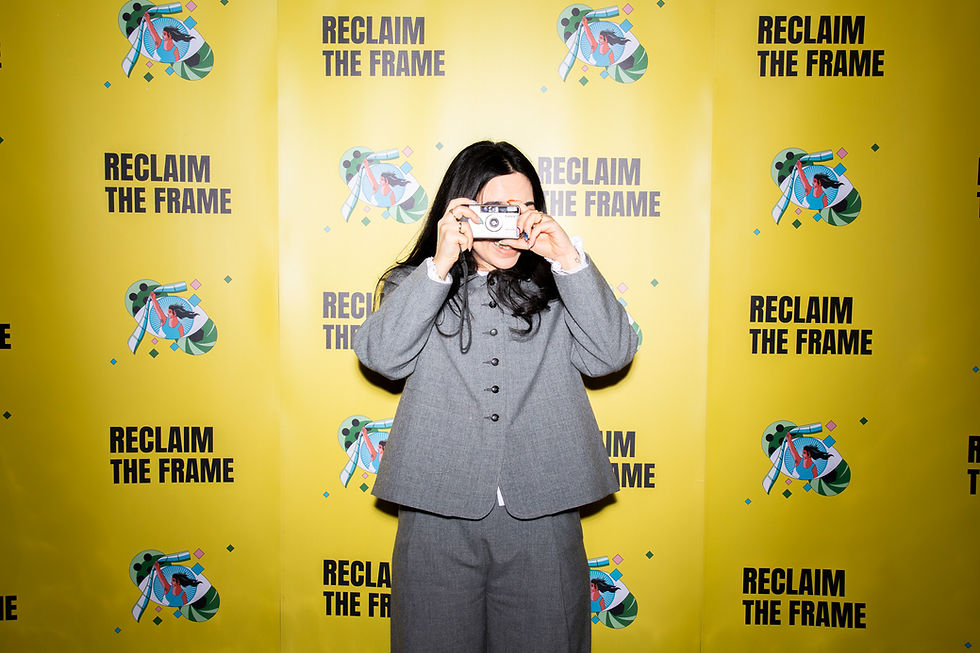WGGB Equality Writes Campaign
- Jul 10, 2018
- 3 min read
Equality Writes is WGGB’s campaign to tackle inequality in the screen industries
Only 16% of working film writers in the UK are female, and only 14% of prime-time TV is written by women. These are just two of the shocking findings in a new, independent report commissioned by WGGB.
The report, Gender Inequality and Screenwriters, was funded by the Authors’ Licensing and Collecting Society (ALCS) and authored by Alexis Kreager with Stephen Follows.
It spans a whole decade and reveals that TV shows and films written by women in the UK have flatlined during that period, with no consistent improvement in gender representation.
WGGB’s Equality Writes campaign aims to tackle the problem. Find out more and pledge your support on the campaign website.
Top 10 Myths About Women and Screenwriting
Myth 1. “The data in the Equality Writes report is historical – things are better now, right?”
The report used the available data covering 2000-2016 (2005-2016 for Film) and there is no improving trend in the whole period. Some commissioners are claiming that since 2017 things have improved but we have not seen evidence to support this. Piecemeal efforts by individual commissioners, producers or channels don’t add up to systemic change. We need access to detailed, programme level data to see where these promised improvements are happening.
Myth 2. “There simply aren’t as many women who want to write.”
The figures don’t support this. Our evidence shows that roughly equal numbers start off wanting to enter the profession, but at every career stage there are fewer and fewer women. The hiring process for writers is different from that of most other careers, making it much harder to identify why that is.
Myth 3. “Men are just better writers.”
We know that tastes differ and there is no objective measure of quality. That said, if we look at box office revenue, review scores and viewing figures – these all suggest that projects written by women are more successful and popular.
Myth 4. “Women can’t write comedy”
In comedy, research shows only 11% of UK television comedy is written by women. Panel shows, the biggest employer of comedy writers, have almost exclusively male writing teams. When a woman does get into the room, it’s often a hostile and testosterone driven atmosphere. As for women comedy writers not being funny, how about, Sharon Horgan, Lisa McGee, Daisy May Cooper and Ruth Jones?
Myth 5: “Women don’t write sci-fi”
Despite the fact that women from Mary Shelley to Ursula Le Guin and Margaret Atwood have produced genre-defining works of science fiction, when it comes to writing for the screen even established women writers are rarely trusted with big name shows.
Myth 6. “Women just aren’t pitching to commissioners”.
If this is the case for some commissioners, it is important that they ask themselves why. Producers are often the gate-keepers in the commissioning process and try to guess what a commissioner is interested in. If producers believe that a commissioner is only interested in certain types of writer, that needs to be challenged.
Myth 7. “Women aren’t pushy enough, they need to network like men.”
No, the industry needs to make changes so that a variety of voices can be heard. Commissioning decisions should be made on the quality of the work, not the personality of the writer.
Myth 8. “Women’s caring responsibilities mean they can’t put in the hours.”
Not all women have caring responsibilities and many women can and do balance long hours with other responsibilities. However, if the culture makes the work inaccessible to some groups of workers, then the culture needs to change. Long hours culture is damaging to all workers and everyone is entitled to a family life (however they define it).
Myth 9. “Women prefer writing for daytime and children’s TV”
Research shows that women writers find it much harder to move between programmes than men, even with a great deal of experience. Daytime and Children’s are great but the more prestigious a programme is the less likely women are to be writing for it.
Myth 10. “It’s gone too far the other way. It’s now men that are discriminated against and everything is about women writers”.
While we welcome the new development programmes aimed at women writers and underrepresented groups, the overwhelming majority of films and TV shows (especially large-budget and/or prime-time shows) are still written by men.
WHAT WGGB ARE DOING
We are calling on industry to work with us to effect positive change.
In the short term we are calling for:
• Programme-level TV equality monitoring data to be released.
• Public funders to pledge a 50/50 split between male and female-written films by 2020.
We want equality of opportunity for all under-represented groups, for example BAME writers, LGBT+ writers, writers with disabilities and working-class writers. We believe the release of equality data is essential, so we can broaden out our campaign and ensure that writing is a profession which is fair, equal and free from discrimination.
WGGB’s Equality Writes campaign aims to tackle the problem. Find out more and pledge your support on the campaign website.


